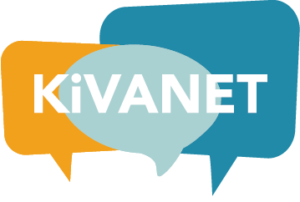| Organizing school | University of Vaasa |
| Language of instruction | English |
| Schedule | Course open in Moodle: 26.01.2026 – 15.04.2026 |
| Webinars | Schedule of online meetings:
Students are required to attend at least half of the scheduled meetings. |
| Exam on Moodle |
1st exam: 4th of March to 11th of March 2nd exam: 1st of April to 8th of April 3rd exam: 15th of April to 22nd of April |
| CEFR-level | Starting level A1.1 -> target level A1.2 |
| ECTS | 3 |
| Prerequisites | The course requires completion of KiVANET Ranska 1 or French 1 or equivalent knowledge of French (level A1.1). |
Course description
Learning outcomes:
On completion of the course, students will be able to talk about their everyday life, past, and future events, write short messages, handle a situation in a café or restaurant, describe people and their clothing, resolve small problems and ask questions and express what they need.
Content:
Students will learn more about French pronunciation, basic structures and vocabulary, while strengthening their listening comprehension and speech production in the most common communication situations. The course will also introduce students to French culture and customs. Topics covered are: time expressions and large numbers, reflexive verbs, formation and use of tenses: near future (aller + infinitive), past continuous (être en train de + infinitive), recent past (venir de + infinitive), past tense passé composé, partitive and expressions of quantity, adjectives, conjugation and use of modal auxiliaries: vouloir, pouvoir, devoir, and savoir, the structure “avoir besoin de” and formation of questions.
Study and assessment methods:
Students will study independently with the help of texts, recordings, videos and interactive exercises in the learning environment and practice what they have learned in the weekly online meetings. The evaluation is based on the interactive exercises and assignments and three exams.
Learning materials:
All the materials are available in a digital learning environment.
Grading scale and evaluation criteria:
Pass/Fail or 0–5 depending on the implementation. The assignments are evaluated on a pass/fail scale.
Workload:
- Self-study 25h
- Exercises 28h
- Online meetings 12 x 2h = 24h
- Exam 4h
In total 81 hours. One credit corresponds to 27 h of student’s work (3 x 27 h = 81 h).
